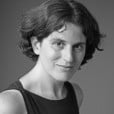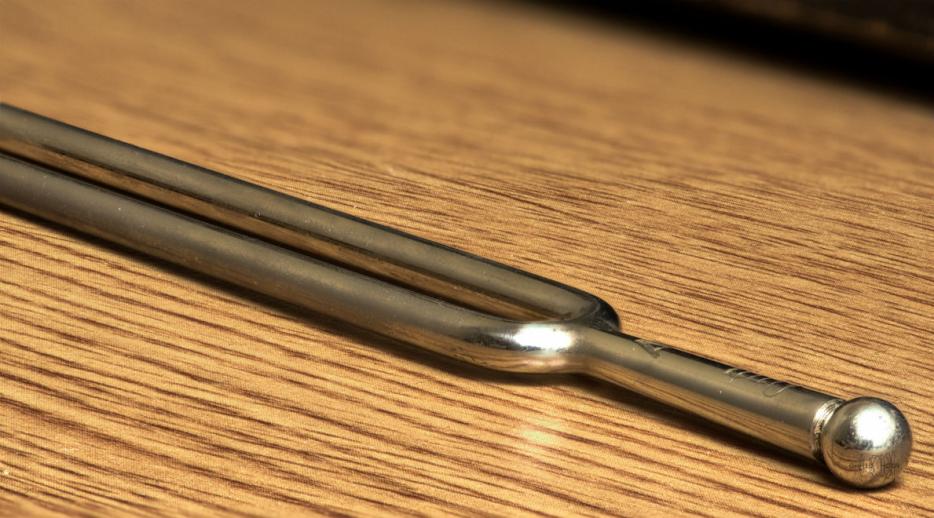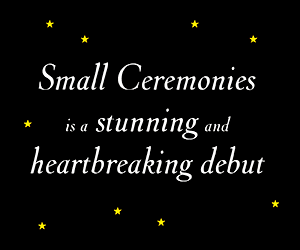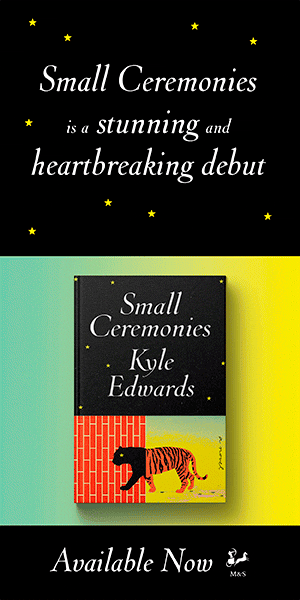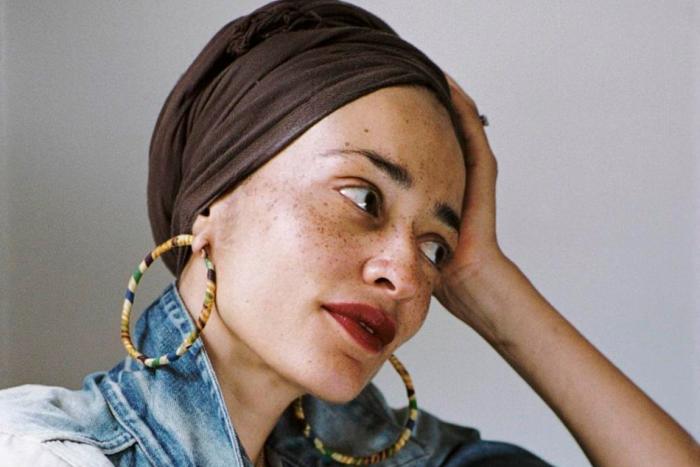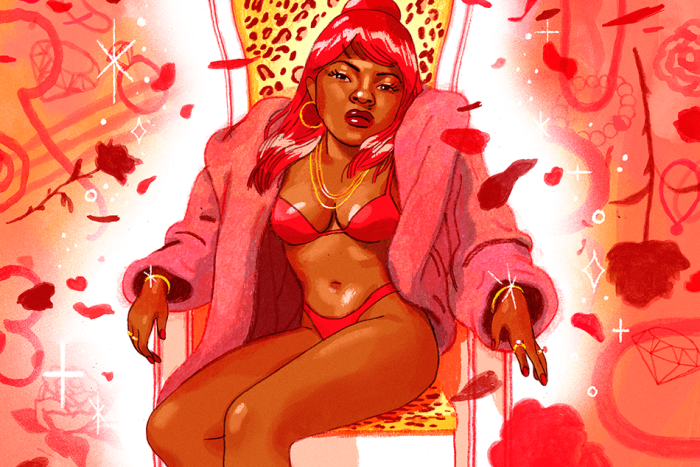What was important to us in 2016? Hazlitt’s writers reflect on the year’s issues, big and small.
On a rainy Saturday afternoon in October, I feel the siren lure of a Modigliani mounted on an austere white wall. The painting is part of a three-floor exhibition of nudes by the likes of Matisse, Warhol, Lichtenstein, and many others on exhibition at the Gagosian's Upper East Side gallery.
As is my wont, I forgo the printed-out guide and go straight to the substance. I don't recognize the Modigliani right away. Not until I connect it to another of his works across the room, bearing a signature the other lacks.
I take in art the same way I read books or ingest food: in rapid bursts, with gusto, swallowing before I've fully finished chewing. As if there is no time to waste, because often, there isn't.
Yet there are moments when I slow down. When all the other paintings, sculptures, installations, and fellow gallery-goers fade into the background, leaving me and a single work of art alone together. Time decelerates. My breathing relaxes. The artwork speaks to me in a language I understand.
The subject of the painting that captures my gaze stares straight ahead with wide eyes, dark hair parted in the middle and down past her shoulders. She is entirely nude. Her hands cover her most intimate parts. But I don't notice the lower half because my eyes fix upon her breasts: the right is uncovered, the left is not.
I feel an answering pang. Because for months, most often in my mind but also in practice, I have covered my left breast with my right hand. First to reckon with an addition. And then, more recently, to account for a subtraction, and its coming ramifications.
*
I felt the lump on a Saturday night in July. I was with friends about two and a half hours north of New York City at a house by a lake. The place radiated beauty and peace. At night we built fires and roasted marshmallows and drank whiskey and let ourselves feel languid and content. In the mornings we breakfasted by big bay windows in the kitchen, more than mildly alarmed when a baby bear showed up to romp among the trees.
My left hand brushed against my breast as I changed into sleepwear. An involuntary gesture performed untold times in the past. This time set off an alarm. Whoa, I thought, this does not feel right. I wasn't scared. I wasn't surprised. I made appointments as soon as I returned home.
When the results arrived a month later, after a battery of tests, injections, and incisions, it felt right in the way that only something utterly wrong can feel right. Bad news had knocked on my door and shoved its way in before I could answer.
I stared at the phone that Friday morning, taking in the news. You can cry a little now and save the rest for later, I thought. There was a deadline to meet, as there is every weekday morning. An interview to conduct elsewhere in the borough that afternoon. A trip to Scotland and Oxford, planned months ago, to embark upon in a few short weeks. The world, indifferent and blithe, didn't need to know that my own had tilted past its usual axis.
It was enough that I knew.
*
I wasn't surprised because the diagnosis felt fated. I'd lived with the possibility for most of my adult life. My mother got breast cancer when I was twenty-four: her double mastectomy and subsequent chemotherapy seemed to me like practical solutions to a problem. When one in eight women are diagnosed with breast cancer in their lifetimes, is it such a big deal?
My mother is still alive. My father, diagnosed with colon cancer four years afterward, is not. He lived three and a half years with the disease, and the time seemed to stretch past a natural limit. But then, my father long believed he wouldn't live past forty thanks to various health ailments, true or misdiagnosed, that began in his youth. (My older brother was born two months before that fortieth birthday, and I followed two years later.)
Throughout my twenties and thirties I made dark jokes about the life expectancy of my breasts. Like many, if not most women, I have complex feelings about my body, an endless loop of self-loathing to grudging acceptance and back again. I wish my stomach were smaller, my nose less crooked, and the folds under my chin less prominent. But the trade-off between losing a few extra pounds and sacrificing my sweet tooth never seemed worth it.
I liked my breasts. They were large and full and no sports bra could properly contain them, but I didn't mind. They were mine. I didn't want them to change. I accepted them, I suppose, because I suspected one day they would disappear entirely. Better to enjoy them while they lasted.
The diagnosis changed my thinking. It shifted me away from total subtraction to something approaching conservation. The cancer was, in a manner of speaking, lazy, erupting over a period of months, possibly years, from a contained mass of cells hiding out in the milk ducts to an invasive lump barely an inch in circumference.
The first surgeon I consulted seemed more invested in enrolling me in a clinical trial than setting a surgery date. The second surgeon, the one I chose, began with urgency but never lacked optimism. The whole breast didn't need to go. Only a portion, just a little larger than that tiny 2-centimeter tumor.
With that subtraction came added emotional baggage.
*
I wish I'd taken pictures. Now, after, I remember them as they were, but not well enough to describe them beyond size and density. They were mine and I let them go and can no longer trust my memory.
I didn't take pictures because then, the idea embarrassed me. I may live a secular lifestyle but modesty, or tsniyut, keeps a vise-like hold. Sexting is an idea so alien to me I laugh contemplating the very notion. If I can't trust my own memory, I certainly can't rely on the handful of former romantic partners, none of whom I speak to anymore, for their opinions.
I'm left instead to make mental comparisons between before and after. Or, if I must be scrupulous, before and between. I'm told, again and again by the chorus of doctors and nurses, that the plastic surgeon's work was “beautiful,” that the healing proceeds “quickly and beautifully.”
What they characterize as quick means many weeks of numbness to the touch, sutures too stubborn to fall off of their own volition, mottled blue bruising reflecting lingering inner swellings. And scars, so many scars, drifting down from both nipples, separating out along the undersides, that will fade, but remain forever.
The scars don't bother me much. They are evidence of chaos disrupted and order restored. I admit, though, to spending too much time contemplating how my scars will be received in the heat of future moments, when frenzy gives way to quizzical looks and unspoken (or possibly blurted-out) questions I will have little desire to address.
I can't quite shake the notion that my breasts are a proverbial quantum superposition, like light being both a particle and a wave. They are both mine and not, natural and artificial, my former size and some new, smaller numerical value still out of definitive reach.
Or, to be less cerebral, whose boobs are these now? Will they ever fully feel like my own? When I finally try on a proper bra, not the surgical ones I've been wearing lately for comfort and gentle support while I heal, will I feel crushed that what fits doesn't match what I used to know to be true? How did a real-life math problem, something that should be abstract, add up to something like grief?
I'm still working out how. I think it's bound up in the remnants of older versions of myself that must be discarded. Versions that perhaps carried the malignancy which grew, millimeter by millimeter, into the lump which altered my equilibrium.
I sense the difference the first few times I leave the apartment after surgery. At first I can barely manage a block, glad I indulged friends who worried I should not walk alone. The next time I manage a half mile's worth. Within a week I'm back to work—typing is no real strain on a healing chest—and within two can lift light garbage bags and knapsacks filled with a handful of books.
But the surgery, its commensurate excisions and augmentations, tilts me forward. I arch my shoulders to compensate for the changed breast mass. I breathe deeper to compensate. My posture straightens, but at a cost of more fatigue.
I can't locate my center of gravity. I wonder if I ever will.
*
I return to my weekly choir practice. I've been a member for years, a serious choral singer since the age of fifteen, and it's a welcome salve against the daily stresses of the writing and editing life. When I sing, melody or harmony, I am part of another realm. As Sarah Manguso wrote earlier this year, “I can make sound, focus the mind, enjoy myself and forget myself, all at once.”
Lately I felt adrift from that other realm. As I child I learned I had absolute pitch. I grew so confident in its presence that I hardly questioned the existence of this musical standard by which compositions deviate. No tuning fork necessary if someone wanted an A about middle C and I was around to sing it.
Until I found myself, rehearsal after rehearsal, in the primordial muck of needing other notes to locate my own. I puzzled over why the piano sounded a quarter-tone sharp, whether it was tuned too high or if my ear erred. It's similar to exposing a violin to too much moisture, warping the sound just enough to dull its vibrancy.
It was a creeping, silent madness, compounded by other large-scale stresses shed only after a dramatic turn of events. And though I suspected my earlier pitch-perfection would return with calm restored to my being, I dared not hope. It would emerge and then retreat.
This semester we are singing music by American composers. And I notice, as we practice Aaron Copland's “In The Beginning,” his tonally complex setting of Creation as set forth in the first book of the Torah, that my voice is stronger, the high notes brighter and the low notes richer. Was it the extra rest, forsaking alcohol, or something more nebulous? Perhaps all, perhaps something else entirely.
I also notice another welcome addition, or rather, confirmation: the return of absolute pitch.
It's there the next rehearsal, too. It seems to stick for good.
The tuning fork in my mind was, once more, set at the right frequency.
If only my body could be reset in turn.
*
Laura Turner, describing her miscarriage earlier this year in an essay for BuzzFeed, characterized two distinct genres of writing on the subject: “online forums where women share urgent updates and well-written stories from those who have some distance from the event. There isn’t much in between, which is where I stand.”
Cancer narratives also split into two such groups. I've crested the state of urgency, with the surgery over, the lump removed, the margins and lymph nodes cleared, the total carcinoma excised. Distance is years in the future, at a time when the shadow of recurrence decays like the half-life of carbon, near but never quite reaching zero.
Here I am, now, in the in-between. Past malignancy and onto prevention. Past bodily reconfiguration and onto more physiological transformations. Past abrupt disruption and onto more recurring ones, ingesting drugs intravenously and subcutaneously, followed by radiation zapping the no-longer-cancer-ridden breast in more concentrated bursts.
Those transformations haven't happened yet. Nothing I can anticipate can truly prepare me for what's next, so I leave anticipation to others, for me to absorb or ignore.
As this year bleeds into the next, I know this:
I wait. I write. I live.

